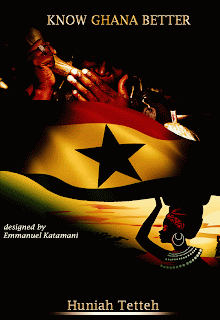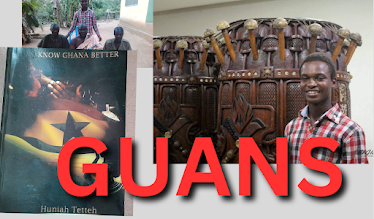NOUNS IN THE GA LANGUAGE (GBƐIWIEMƆI YƐ GA MLI )
NOUNS IN THE GA LANGUAGE (GBƐIWIEMƆI YƐ GA MLI )
In Latin, "noun" simply means "a name." They refer to names of people, animals, places or things. They can be concrete or abstract. These things can be anything from living creatures and places to actions, qualities, states of existence, and even ideas. So, whether you're talking about the Independence Arc, the Bank of Ghana building or the Kwame Nkrumah Mausoleum, then you're talking about nouns.
Think of nouns as language name tags—they label and identify stuff. In the Ga language, we have groupings of nouns. A noun is called Gbɛiwiemɔ in the Ga language. There are several types of them and we look at the types in the article below
Kwamaŋgbɛi (Common Nouns): These are everyday words that we use or things we see. They refer to general things, like “dog - gbei,” “city- maŋ” "spoon-awale," "okpɔlɔ- table" or “book - wolo.”
Kɔsuaŋgbɛi (Proper Nouns): These are more specific and refer to the names of people, countries, languages, places or even countries. eg. Gã, Ashaŋte, Nii, Naa, Kojo, Ajua, Kwashi, Tɛtɛ, Tɛte, Akra, Kumasi, La, Osu, Gaana, Ablotsi, Daŋme etc.
Gbɛiwiemɔ ni ataa he (Concrete Nouns): These are physical entities that occupy space and can be touched and felt and even interact. Picture a juicy apple (aplo), a cozy blanket, or a bumpy road(lɔle gbɛ).
Kɔɔyɔŋgbɛi/Gbɛisisa (Abstract Nouns): These are a bit more elusive. They refer to intangible stuff or how one feels. eg. incude “peace-toiŋjɔlɛ," “happiness-miishɛɛ,” "fear- gbeyeshemɔ" or “freedom-hejɔlɛ”
Gbɛiwiemɔ ni akaneɔ (Countable Nouns): These can be counted individually. For instance, you can have one cat (alɔŋte kome), two cats (alɔŋtei enyɔ) or a hundred cats (alɔŋtei oha).
Gbɛiwiemɔ ni akaneee (Uncountable Nouns): These don’t play well with numbers. They refer to things you can’t easily quantify, like “water -nu” “wisdom - nilee” or “music - lala”
Feemɔwiemɔ gbɛi (Verbal Nouns/Gerunds): These are like word chameleons—they’re formed from verbs but act like nouns. For example, “swimming -faawumɔ/ŋshɔwumɔ” (from the verb “to swim”) or “singing- lalalamɔ” (from “to sing”).
Mlitsogbɛi (Gender-Specific Nouns): Some nouns have gender baked into them. Like Nuu (man), yoo (woman), yoomo (old lady), wɔnuu (a priest), wɔyoo (a priestess), binuu (son), biyoo (daughter).
Gbɛikushao (Collective Nouns): These represent groups of things. Like weku - a family.








AWESOME! ba bi϶!
ReplyDeleteHi Ms. Tetteh, I am interested in what you do. I am a Ga language advocate. Will like to connect with you. Thanks
ReplyDeleteI'm on youtube and Tiktok as Huniah. You can please connect from there. This blog is an extension of my youtube channel not an independent one
Delete